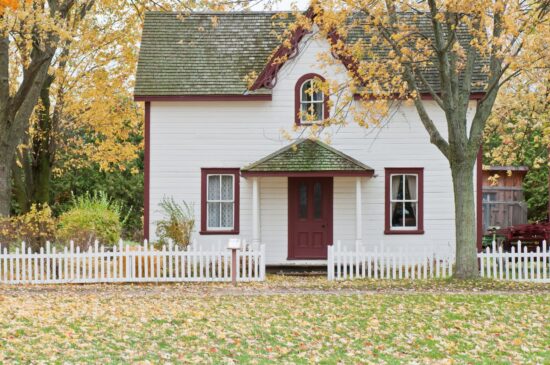
You might be asking “what are landlord’s legal responsibilities in New Jersey”? Local and federal rules need to be followed by New Jersey landlords if they are into residential and commercial renting businesses. It can be costly to landlords when they fail to comply with his or her legal responsibilities. Everything should come in order right from the start to avoid common issues and maintain the productivity of the managed business.
Right into this article are the top landlord’s legal responsibilities in New Jersey that should be marked as important to obtain a healthy renting space business.
1. RENT-RELATED ISSUES SHOULD FOLLOW STATE RULES
Every landlord needs a tenant who can pay their rent on time. However, there are cases when landlords could possibly bump into issues with their tenants such as financial crisis, unexpected unemployment issues, tenants did damages to the property and being a nuisance to adjacent tenants, and other rent-related issues. One of the landlords’ responsibilities in New Jersey is to secure its firm out of negativity either by good negotiation or eviction.
Out of nowhere, these issues have to be fixed appropriately. Forcing an eviction without following the state rules is negligence to the law. New Jersey State law regulates some of these issues such as how much notice a landlord should give to the tenant to pay the rent, or even filing an eviction lawsuit.
Check out this article on easy steps on how to evict a tenant quickly.
2. NEVER DISCRIMINATE POTENTIAL TENANTS
Part of renting your space is choosing who could live. One of the landlord’s responsibilities in New Jersey is to know who their tenants are and that includes the history or background of the tenant’s past rent payments, negative preferences from the recent landlords, and financial status (mostly bad credits). However, it is against the law if you discriminate against potential tenants based on their sex, race, religion, familial status, or disabilities.
Failure to follow the law can still fall to costly discrimination lawsuits.
3. FOLLOW STATE SECURITY DEPOSIT LIMITS AND RETURN RULES
Avoiding disputes and getting rid of potential problems in rental payments such as security deposits are another part landlord’s responsibilities. We all know security deposits might be crucial especially when tenants eventually leave the vicinity. To optimize security deposits concern, maintain a checklist when a tenant moves in and also when he moves out of your rental unit. Don’t forget to send a written security deposit itemization for reference.

4. THE RENTAL UNIT PROVIDED SHOULD BE HABITABLE
The living condition in a rental space should be habitable. Landlords are responsible for taking care of their assets to get good impressions from their clients (tenants).
- A landlord needs to keep up with safety codes. Maintain your property as a landlord. Every town or city in New Jersey does have different laws that will matter on how you should maintain your rental unit. Snow removal, lawn care, outdoor furniture are some of the factors you need to look into.
- Performing repairs before, during, and after the tenancy is another key in providing a safety rental space. Landlord’s responsibilities on repairing things such as clogged gutter drains, faulty devices being used inside, and peeling paints should be performed.
- Landlords should be the ones to initiate pest control to provide a habitable rent space. But if ever the renter requests for pest infestation by themselves, they can do it on their own as long as there is an approval from the landlord itself.
- Molds must be removed in the rental. Any causes that build mold should be fixed.
- Based on the law, landlords are also responsible for ensuring the smoke and carbon monoxide detectors are ready in case of fire.
5. LEGAL WRITTEN LEASE OR RENTAL AGREEMENT
Put into writing every important document such as the rental agreement or leases. The lease agreement serves as the contractual basis of the landlord and tenant relationship. This rental agreement will explain all of the rules and regulations that everyone should follow by the time of the occupancy. It also includes the amount of rent the tenant should pay every month and the time duration of how long the tenant will stay.
Creating an effective and legal lease agreement is one of the landlord’s responsibilities in order to provide a good relationship with their tenants. If problems would arise such as rent-related issues, the landlord and tenant could refer to the written agreement to clear up the misunderstanding and take necessary steps on the concerns.
6. ALWAYS RESPECT TENANT’S PRIVACY
Once tenants sign the lease agreement, they have the right to own the turned-over premises. However, there are special occasions that the landlord can still enter.
– If tenants have requested to do some repairs or assess the need for repairs
– Emergency situations such as fire and other calamities
– Showing property to new possible renters or owners
– If tenants ask the landlord to enter
– If there is an inspection but the inspection must be done by intervals. The landlord shall send an advance notice.
In order not to violate the tenant’s privacy, the landlord shall send a 24 or 48-hour notice before entering the rental unit occupied by the tenant.

7. NOT TO RENEW A LEASE AGREEMENT
If a landlord plans not to renew a lease agreement, he shall send a notice 60 days before the end of the rent to give the tenant ample time to find a new rental. The notice can include the reasons behind why the renewal can’t proceed.
The act of not renewing the lease agreement and sending a notice for 60 days may vary depending on the laws of the state.
Related Article: Helpful Tips in Dealing with Demanding Tenants